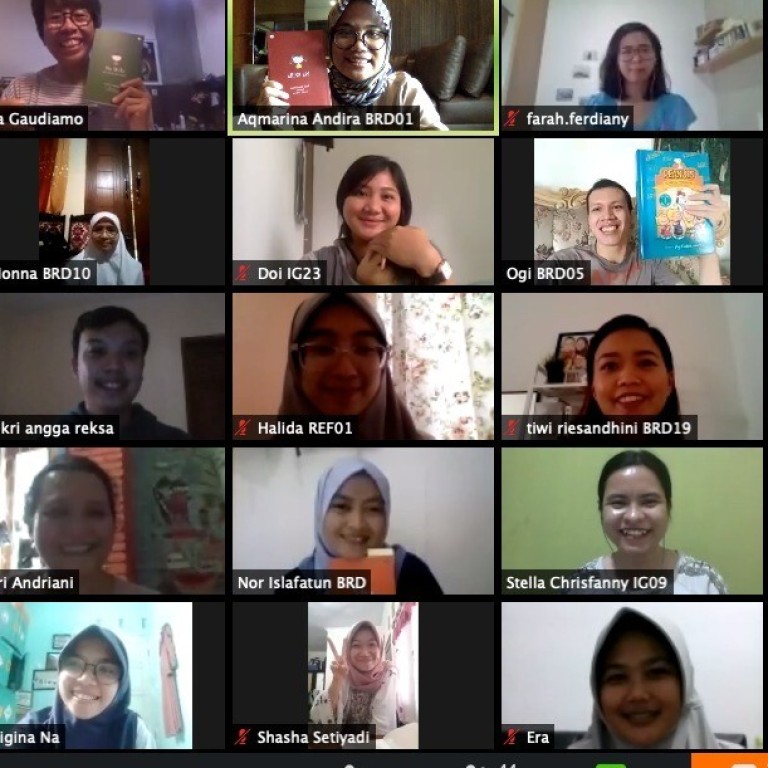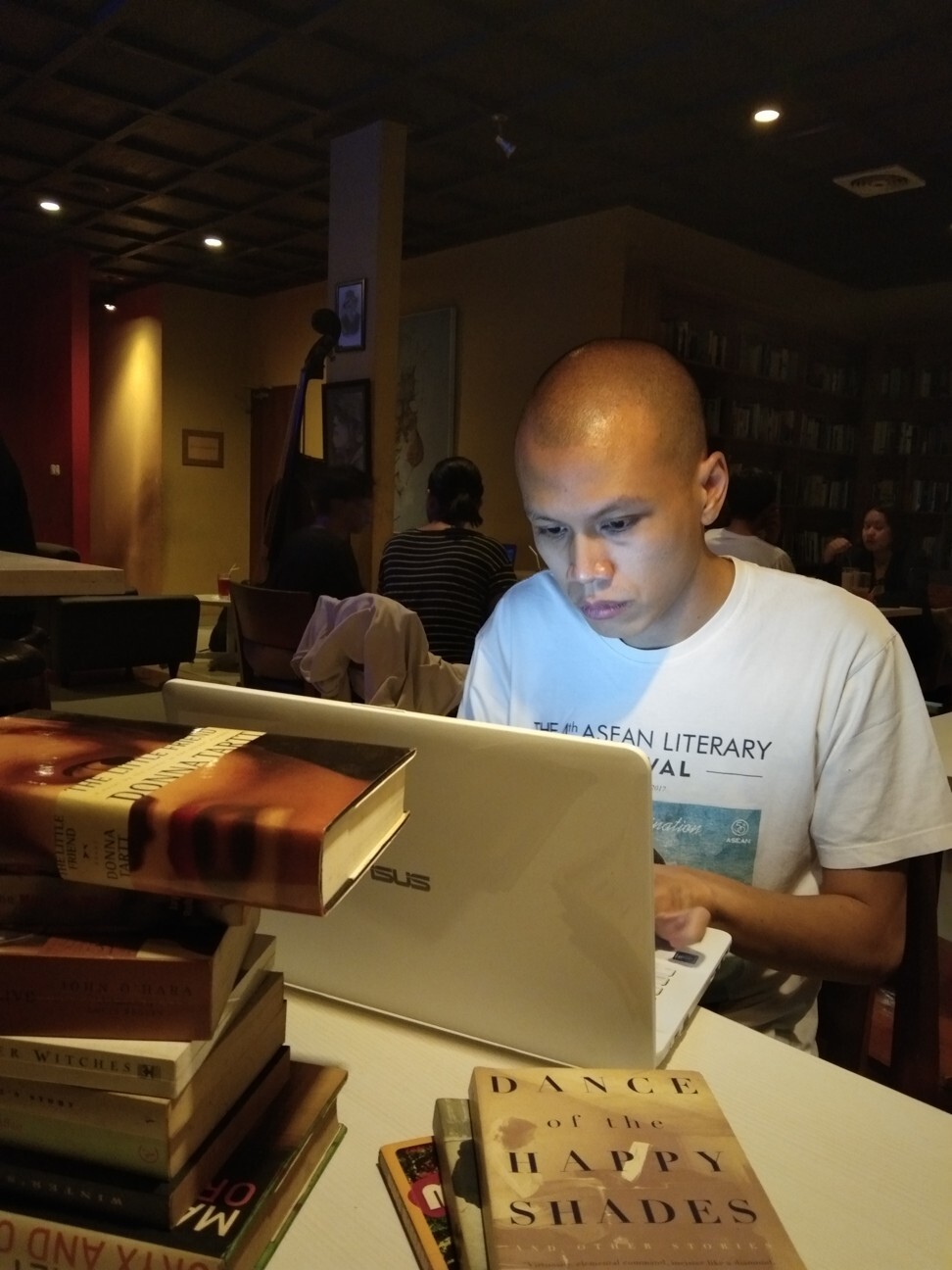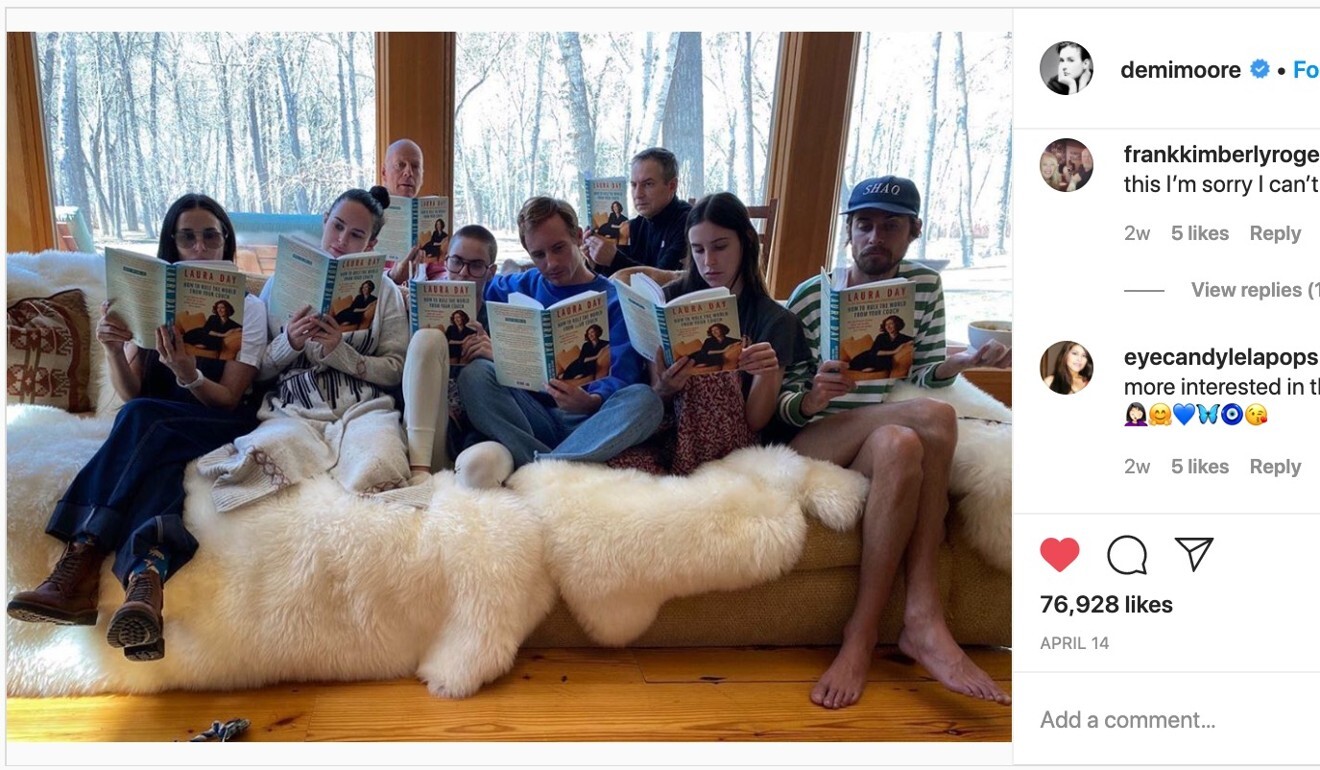
Ask Demi Moore: book clubs offer emotional support, stress management for people in lockdown from Hollywood to Asia
- Online book clubs are seeing a surge in popularity, among celebrities and ordinary people, as book lovers under lockdown come together
- Reading relieves stress, and the clubs’ members offer each other emotional support and a community
While shut in their homes voluntarily or under lockdown during the coronavirus pandemic, savvy people around the world are joining online activities to stay healthy – physically and mentally. For many, it has been a time to rediscover their love of reading and unite with fellow bookworms through book clubs.
After the Indonesian government issued a stay-at-home order on March 27, Jakarta-based freelance journalist Sebastian Partogi moved to his family’s West Java home so he wouldn’t be alone. The 30-year-old is a regular member of the Baca Rasa Dengar (Read Feel Listen) book club in Jakarta, established in 2015.
While its monthly meetings usually take place in cafes, it migrated online in February, using the Zoom videoconferencing platform so members could see and talk to each other.

“Since the quarantine period, we committed ourselves to host weekly meetings to support one another emotionally,” says Partogi.
The book club serves as a social support network; members use the opportunity to vent their emotions as well as to talk about a book’s theme or characters. Others respond with insights or comforting messages. Partogi relishes seeing everyone’s faces in the virtual gatherings, affirming everyone is healthy and well.
“It instils a sense of gratitude in our hearts that we still have each other and we’re still OK,” he says.
Members are from all walks of life – journalists, academics, engineers, activists, private company employees and more – resulting in lively intellectual exchanges on various book topics, often about societal issues gripping Indonesia.
“We still develop ourselves during this difficult time, learn new things, get smarter and motivate each other in whatever line of work we do,” he says. The meetings remind him of what matters most in life, he adds.

Celebrities are driving the trend. American actress Demi Moore, when in quarantine with her family in California, formed a book club, with everyone reading Laura Day’s How to Rule the World From Your Couch, according to her social media.
In Hong Kong, Angela Watkins, a counsellor and psychologist at the Red Door practice in Central, runs the “Co-Read-19” fortnightly book club to help attendees manage their stress.

Fong says connecting with others is important for our mental health in times of stress and uncertainty, and book clubs serve that purpose.
“Research [in 2010 by Harvard University psychologists] Matthew Killingsworth and Daniel Gilbert suggests that our mind wanders around 46.9 per cent of the time. This wandering can lead to continuously thinking negative thoughts … that could affect our well-being. So activities like meditation or reading allow us to get our attention back to stay in focus,” she explains.

“Connecting to others, even online, can create positive experiences and help release oxytocin, a good brain chemical that makes you happy and reduces stress levels,” Fong says.
Partogi isn’t surprised many others are getting lost in literature now. “You create a theatre in your mind, you’re free to imagine what you want,” he says. He cites The Child That Books Built, an autobiographical work by Francis Spufford about a boy who found comfort in books to cope with the grief of losing a sibling. Partogi has escaped into books to cope with his struggles since being bullied as a youth.
“Many people [turn to] books that can give them a sense of common humanity,” he says.
Partogi is convinced the love of books and book clubs will continue after lockdown measures ease, since reading is good not only for members’ mental health, but also for their bank balances.
“I believe even after the quarantine period is over, my book club members will take some austerity measures,” he says, spending less time and money shopping and for entertainment. “I believe – since all of us are natural-born bookworms – we will allocate more time for reading, and not only reading the books we bought during the quarantine.”

